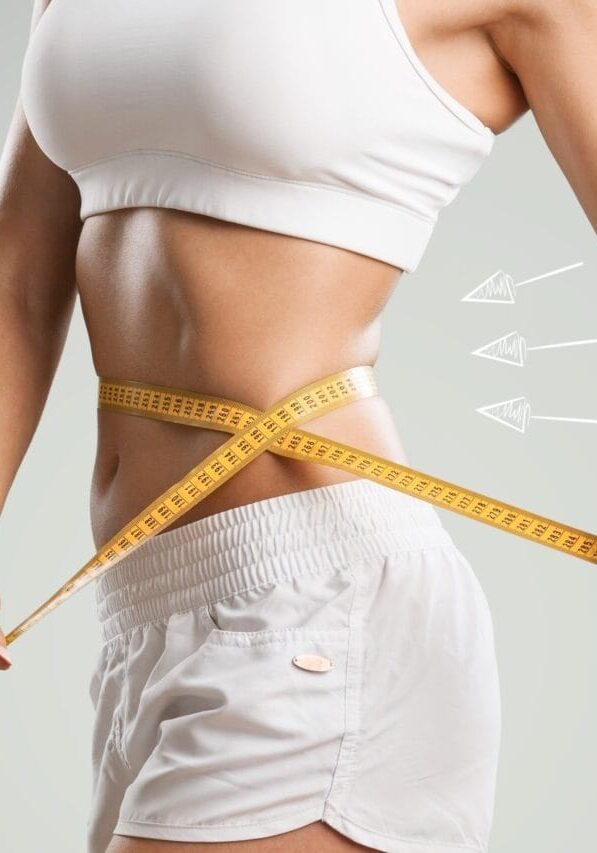Are breast implants safe?
Whatever your reason may be for considering breast implants, there are a lot of things you need to be aware of before going ahead with the procedure, from the benefits and risks to cost and recovery.
At The McIndoe Centre, the question we hear the most is “are breast implants safe?”. In this guide, we will be exploring this question in detail and providing you with everything you need to know before booking a consultation.
Are Breast Implants Safe?
Breast implants have proven to be a safe option for breast augmentation and breast reconstruction. However, if you undergo surgery with an inexperienced consultant, you are putting yourself at risk. The procedure is safe if carried out by a reputable and qualified surgeon, like our team of specialists at The McIndoe Centre. There are some steps that you can take to ensure that you are getting the best - and safest - treatment possible. Take a look at our list below:
- Ensure the surgeon is GMC qualified
- Ensure the clinic are CQC qualified
- Research the clinic you are going to use
- Attend a consultation first
Doing this will allow you to gain confidence with your chosen surgery. At The McIndoe Centre, our team of consultants take time to get to know you and discuss your breast augmentation journey with you to help you find the best course of action.
Types Of Breast Implants
Breast implants have become an increasingly safe and popular cosmetic treatment due to advancements in technology and a rise in reputable, qualified surgeons across the country. If you are considering this treatment, you may also be wondering which type of breast implant is best for you.
Breast augmentation is a standard procedure that involves using a prosthesis to change the size, shape and contour of a patient's breasts. There are two leading types of breast implants that are presently used in the UK for breast enlargement surgeries:
- Silicone
- Saline
We also use an implant type called the ‘B-Lite’ which is 30% lighter than the standard silicone equivalent. It’s important to note that we don’t use PIP implants and the implants that we do use are ethically approved. Ultimately the choice is yours and our GMC registered team of surgeons are well equipped to advise you.
Silicone Breast Implants
The silicone used to fill the breast implants can be in the form of a liquid or gel. Gel implants are the most commonly used type in the UK. They have a firm, jelly-like feel. On the other hand, silicone is a softer gel that feels more fluid. They are less likely to wrinkle than a gel implant and deliver a slightly more natural look.
There is a slight risk of them rupturing. If this happens, it can be difficult to detect. However, silicone doesn’t do anything in your body and doesn’t present any immediate danger should your implant rupture. Your doctor will discuss the risks with you before going ahead with the procedure. It is important to note that rupturing does not happen to all patients.
Saline Breast Implants
This salt-based, non-prosthetic implant has a slightly firmer feel than silicone. Many patients prefer this type of implant as saline is a solution that is naturally found in our bodies. Some believe that saline implants can look and feel less natural than silicone. However, this type of implant is more liable to rupture than silicone, causing the breast to wrinkle.
Silicone Implants Vs Saline
When it comes to safety, both implants are generally considered safe when carried out by an experienced professional. Some patients believe that saline implants are safer because the salt-based solution will likely absorb into your body if the implant ruptures.
As mentioned above, on some occasions the silicone implant shell may rupture, and the gel can leak out. The inside of a silicone implant is made out of cohesive gel which is similar to a jelly baby in consistency, so this means that the silicone will leak out but at a very slow rate. If you feel discomfort because of the rupture, it is recommended that you have another operation to remove and replace the implants. However, there is no evidence that the ruptured implant causes ill health.
One type of implant may be more beneficial for one person than another. This will depend on some factors such as your current breast size/shape, medical history and breast tissue. Your consultant will discuss this with you and guide you on the best type of implant for you.
Where to Place Implants: Above or Below the Muscle?
Your surgeon will discuss what is best for you, but the choice is either between the breast and the chest muscle or under the muscle. The first option is the most natural place and generally speaking, this placement is a little more comfortable than placing the implant under the muscle. Placing the implant under the muscle gives extra tissue coverage and there is less risk of rippling.
Breast Implants Side Effects
Like most procedures, breast implants can bring along some potential side effects. Most of the time, they are nothing to worry about. If you are concerned, you should seek guidance from your medical professional at your nearest convenience. Below are some of the potential side effects of breast implants:
- Continuous pain in one or both breasts
- Swelling
- Prolonged redness
- Discharge
- High fever
- Noticeable changes in the shape and colour of the breasts
There are some symptoms specifically related to each type of breast implant. If you experience any of the following, you should seek support from your doctor:
- Constant dry mouth
- Constant dry eyes
- Fatigue
- Unexpected high temperature (pyrexia)
- Trouble remembering, concentrating and learning (cognitive impairment)
- Joint and muscle pain (arthralgia, myalgia)
It is also worth noting that there is no association between breast enlargement and breast cancer or cancer of any other part of the body.
Complications that can happen after the operation
Bleeding – the risk of bleeding is less than 1%. Sometimes there will be bleeding into the space around the implant. This usually happens after the operation but occasionally can happen up to two weeks later when the breast becomes swollen and tight. If this happens, you will need to have the blood removed and the bleeding stopped and are likely to need to spend a night in hospital. You will have more bruising than expected but it should settle down in time.
Infection – again, the risk of infection is less than 1%. Sometimes the infection will settle down with antibiotics but if the infection persists, then further surgery could be needed.
Adverse capsular contracture – after surgery, your body will form scar tissue around the implant. This is a normal physical response after the body experiences trauma. For most people, this goes undetected and the breast feels soft and looks natural but in some people the scar contracts and makes breast feel unnaturally firm and sometimes painful. If this occurs, then you should see your surgeon again.
Changes to the feeling of the breasts – most people will get some change in the sensation of their breasts after surgery. Usually, there is some numbness above the scar and oversensitivity of the nipples. This will usually fade over time but in some cases changes to sensation can be permanent.
Breast implants push your natural breasts forward so do not make it any more difficult to self-examine your breasts for lumps. During a consultation with your surgeon, do ask them how to check your breasts for lumps once you have had the implants as some small modifications will need to be made. Breast implants do however interfere with mammography.
Breast Implants Risks And Benefits
There are some risks associated with breast implant surgery. There are times when the procedure may not go as planned, or some patients can experience complications and problems after the surgery. Although there are risks, these do not occur for most patients. There is also a long list of benefits that breast implants can offer, which is why so many people choose this procedure:
- Restores previous breast size (after weight loss, pregnancy or ageing)
- Corrects asymmetrical breasts (difference in size/shape of the breasts)
- Restores breasts after a mastectomy (breast removal)
- Increases confidence
- Boosts self-esteem
Although there are many benefits of breast implants, it is important that you do your research and weigh up the pros and cons before you undergo the procedure. If you choose to go ahead with the treatment, you will be in safe hands at The McIndoe Centre. Our consultants pride themselves on delivering the highest standard of surgical care.
Breast Augmentation At The McIndoe Centre
Breast implants are safe, providing that they are carried out by a qualified surgeon, like our team at The McIndoe Centre. We are proud to say our consultants have helped many women feel more confident in the skin with our breast enlargement/augmentation surgery. We take time to discuss the procedure with you, helping you choose the right implants for you.
At The McIndoe Centre, our consultants guarantee the highest standard of surgical care and results; we look forward to being part of your breast augmentation journey. If you would like to speak to one of our consultations about our services, we would love to hear from you. Don't hesitate to make an enquiry through our website.
Find out more about the McIndoe Centre
We provide outstanding patient experiences
As a nationally recognised hospital of excellence in plastic, reconstructive, ophthalmic and maxillofacial surgery, we have demonstrated ourselves to be: effective, responsive, caring, safe and well-led. Recently rated ‘good’ by the CQC, we are committed to treating our patients and each other with kindness, respect and dignity resulting in life-changing outcomes.
Patient testimonials
Find out what it’s like to be a patient, from the people who matter the most.







